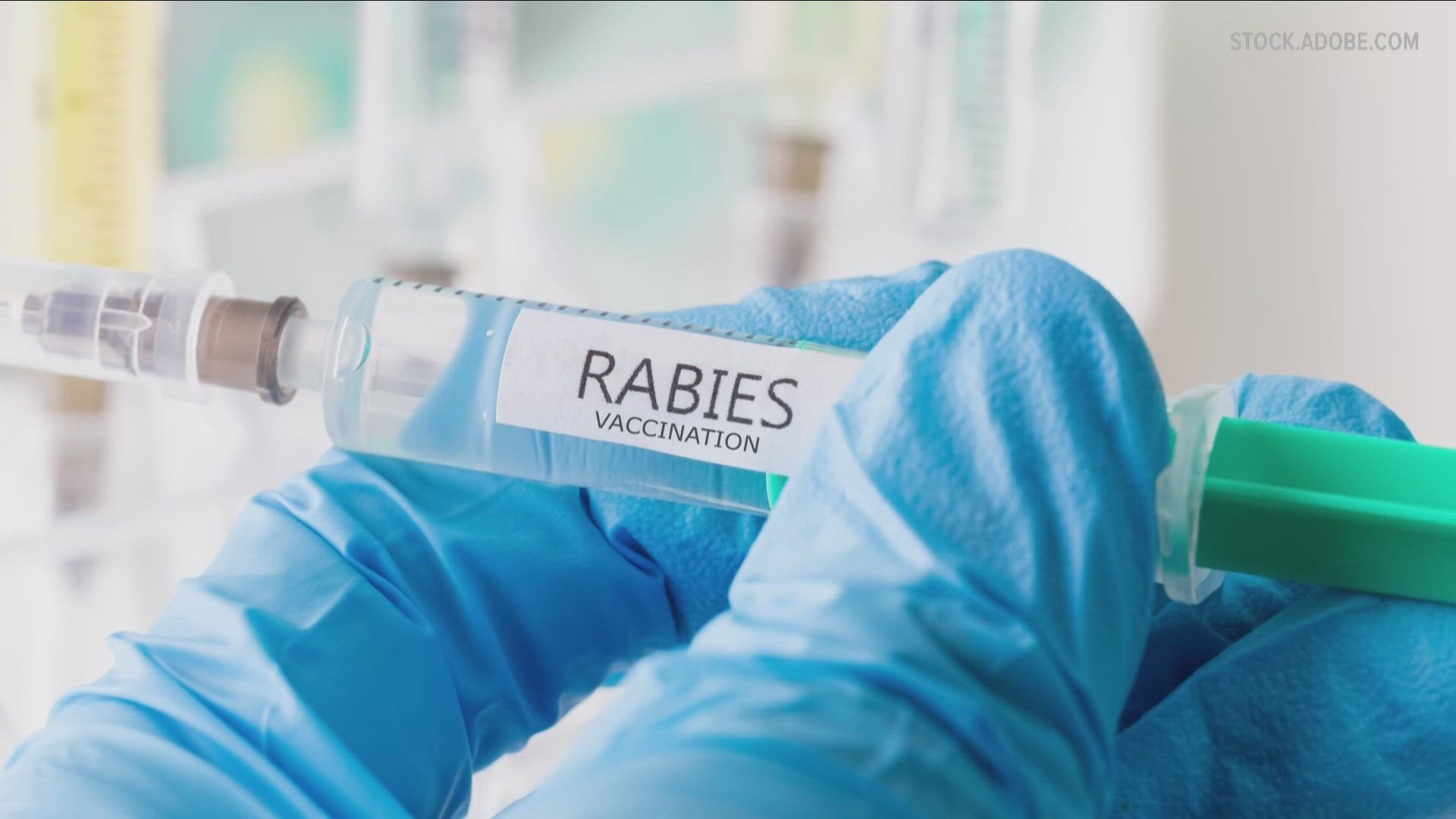BUFFALO, N.Y. — Summertime is here, which means more time in parks and outdoor spaces. According to the New York State Health Department, this is also the time to see an uptick in rabies cases.
“It's not only a busy time for us to see rabid animals, but because people encounter the rabid animals, we also offer more post-exposure treatment to people in the summer than we do in the winter,” said Dr. Andie Newman, Director of Regional Epidemiology and Investigations Program at the New York State Department of Health.
The guidelines laid out by the New York State Department of Health are as follows:
- Don't feed, touch, or adopt wild animals, stray dogs, or feral cats.
- Report all animal bites or contact with wild animals to the local county health department. If possible, do not let any animal escape that has possibly exposed someone to rabies.
- Be sure pet dogs, cats, and ferrets, as well as horses and other livestock animals are up-to-date on their rabies vaccinations. Vaccination protects pets if they are exposed to rabid animals.
- Pets too young to be vaccinated should only be allowed outside under direct observation.
- Keep family pets indoors at night. Don't leave them outside unattended or let them roam free.
- Teach children not to touch any animal they do not know and to tell an adult immediately if they are bitten by any animal.
- Keep property free of stored bird seed or other foods to avoid attracting wild animals. Also, feed pets indoors and cap garbage cans.
- Cover any openings to the attic, basement, porch, or garage, and cap chimneys with screens.
- Bring children and pets indoors and alert neighbors who are outside if wild animals enter the property.
- Individuals who find animals living in or around parts of their home should consult a nuisance wildlife control expert about removing them.
- The local health department should be contacted if a bat is found inside the house. They will advise on what to do with the bat.
- Pet owners should contact the local health department or a veterinarian if their pet has been in a fight with another animal. A rabies booster vaccination may be needed.
Dr. Newman says children are a population that naturally gravitates towards animals.
“It’s very important to teach children not to handle wild animals and to ask permission before approaching a dog or a cat on leash, even if it looks friendly,” said Newman.
And no matter how cute and furry… local health officials are advising the public to stay away from wild animals.
“The worst thing people could do is handle any wildlife. If they see any wildlife skunk or racoon, or even a woodchuck, unfortunately, you’ve gotta not follow your heart and follow your head” said Scott Ecker, Niagara County Associate Supervising Public Health Sanitarian.
Ecker says that in the event you do come into contact with a rabid animal, there are local resources available.
“I’m gonna tout for Niagara County and Erie County: call them. There are experts at those counties that will help you out through this” said Ecker.

